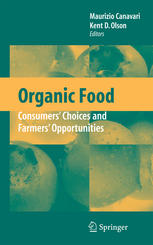

Most ebook files are in PDF format, so you can easily read them using various software such as Foxit Reader or directly on the Google Chrome browser.
Some ebook files are released by publishers in other formats such as .awz, .mobi, .epub, .fb2, etc. You may need to install specific software to read these formats on mobile/PC, such as Calibre.
Please read the tutorial at this link: https://ebookbell.com/faq
We offer FREE conversion to the popular formats you request; however, this may take some time. Therefore, right after payment, please email us, and we will try to provide the service as quickly as possible.
For some exceptional file formats or broken links (if any), please refrain from opening any disputes. Instead, email us first, and we will try to assist within a maximum of 6 hours.
EbookBell Team

4.4
62 reviewsConsumers’ attention to food safety issues and environmental issues has increased overwhelmingly in recent decades because of their increased concern about their own health, the environment’s health, and the crises and emergencies reported worldwide. Once the only option, organic agriculture has always been a production option followed by at least a few farmers all over the world. These farmers were prompted by ethical and environmental motivations, as well as by committed consumers who supported organic agriculture thanks to a separate but fairly elitist distribution channel. Organic food now has become a viable alternative for an increasing number of consumers that are worried about the presence of chemicals residues and the negative consequences on the environment caused by intensive production methods. Many farmers also now see organic farming as a way to stabilize or even increase their income due to public policy support and growing market demand.
Organic Food: Consumers' Choices and Farmers' Opportunities gives an overview of the organic sector, both in Italy and in the United States, and demonstrates how agricultural economists are performing analyses dealing with organic produce on different points in the supply chain. It deals with economic issues raised by organic farming and takes into account both the consumer's needs and the managerial and budget constraints experienced by the farmers. Also farm management methodologies and marketing analyses are used with specific research topics involving several industries in the agri-food sector.
About the Editors:
Maurizio Canavari is an Associate Professor in the University of Bologna’s Department of Agrarian Economy and Engineering.
Kent D. Olson is a Professor in the University of Minnesota’s Department of Applied Economics.